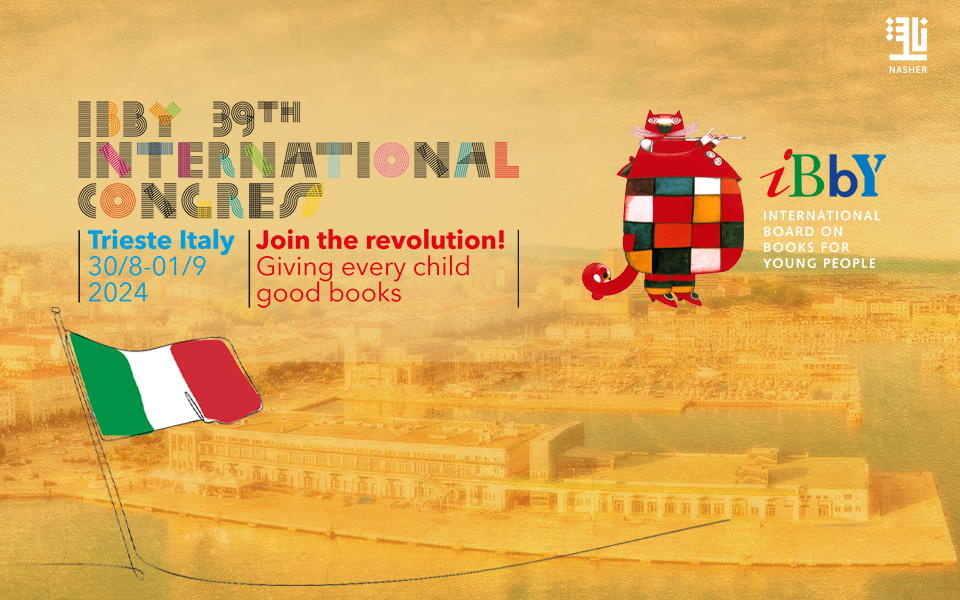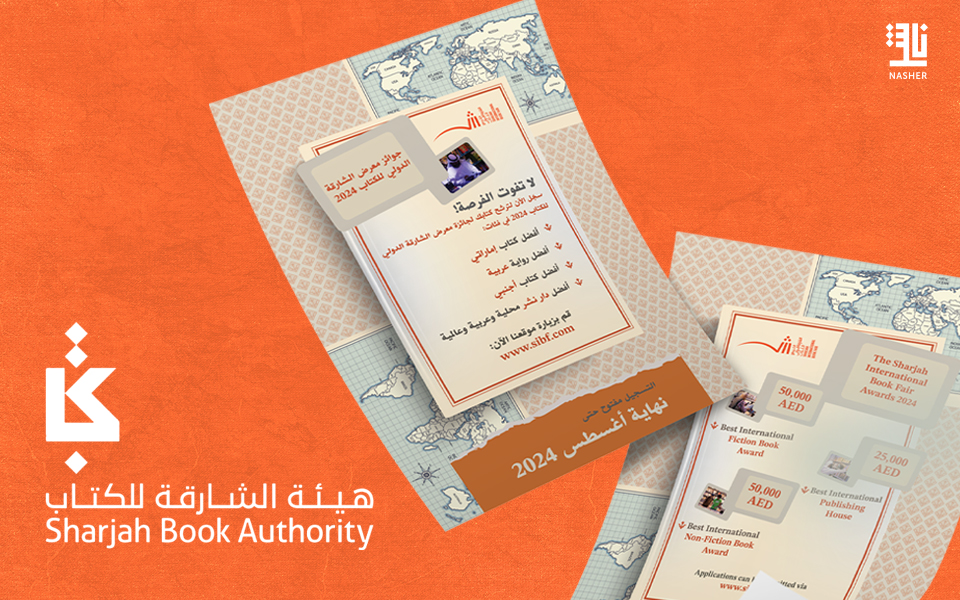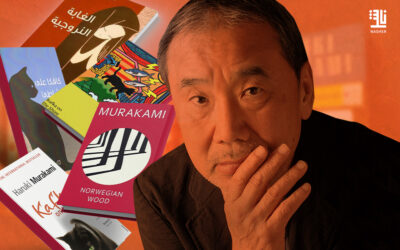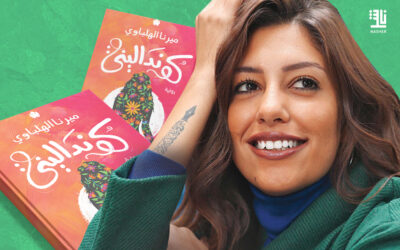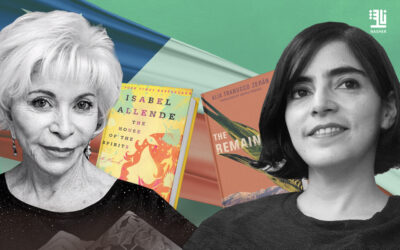On our third journey around the world and in our mission to discover authors from various countries, we land in Algeria to meet some of its most notable writers. The history of literature in Algeria has been informed by centuries of differing, and sometimes warring, cultures: indigenous Berbers, Roman invaders, Muslim Arabs and French colonists have all played a role in the creation and development of Algerian literature.
Kateb Yacine
One of the most prominent writers to emerge in Algeria during its long and painful split from France was Kateb Yacine, whose allegorical 1956 novel Nedjma is set against the backdrop of the 1945 Sétif massacre and the growing discontent that would lead to the outbreak of war in 1954. He also wrote numerous popular plays in French, Arabic and Berber.
Mohammed Dib
Mohammed Dib, whose novels La Grande Maison, L’Incendie, and Le Métier à tisser (collectively known as the Algérie trilogy), set between 1938 and 42, tell of the hardships faced by the peasants and workers of Algeria under French administration. In 1959 he was expelled from Algeria due to his sympathies for the revolution, but was able to settle in France thanks to the efforts of Camus and other writers. Though his early novels had been highly naturalistic and realist, later works such as Qui se souvient de la mer addressed the Algerian revolution and its effects using a more surrealist, allegorical and fantastical style. He also published a number of poetry anthologies, among them 1970’s Formulaires and L’Enfant Jazz in 1998, for which he received the Mallarmé Prize.
Mouloud Feraoun
Most significantly affected by the revolution itself was Mouloud Feraoun, a Kabyle novelist who published several books in the late 1950s and early 60s before being assassinated by the OAS, an anti-secession paramilitary group, in 1962. Despite the circumstances of his death, Feraoun was never unequivocally in favour of independence, and his novels express something of this ambivalence, and the contradictions inherent in being a peasant boy that benefited hugely from the French education system while also being forced to witness many of the injustices of colonisation. Feraoun wrote about indigenous life in Kabylie beneath French rule with the explicit aim of educating a mainland French audience about these contradictions and tensions.
Assia Djebar
Following Algerian independence in 1962, writers turned to addressing the construction of a new Algerian identity in a state now separated, after more than 130 years, from France. Most prominent of the writers in this new movement is Assia Djebar, the pen-name of Fatima-Zohra Imalayen, whose 1960s novels Les enfants du nouveau monde and Les Alouettes naïves concern the actions and experiences of women during the war. She has since emerged as an important voice in both the postcolonial and feminist movements, and her 1985 novel L’Amour, La Fantasia uses a mix of fictional and revisionist history to undermine colonial and patriarchal attitudes, emphasising the experience of women and the complexity of the relationship between a national and a personal identity.
Tahir Wattar
Wattar, who wrote prolifically in Arabic about the experiences of ordinary Algerian people following independence. Though he supported the movement, many of his novels take a bleak view of post-independence Algeria, with works such as Al Laz (1974) and The Fisherman and the Palace (1980) criticising those in power for failing to live up to their ideals.
Yasmina Khadra
Mohammed Moulessehoul was an officer in the Algerian army during the war, and witnessed first-hand many of its horrors, while also writing under the name of his wife, Yasmina Khadra. His novels depict the damage and bloodshed of the competing ideologies, and the attraction of radical Islamism to those alienated by the incompetence and hypocrisy of politicians. His early novels, such as In the Name of God, focused primarily on the situation in Algeria, but in more recent years — with the official end of hostilities in Algeria and their beginning elsewhere in the world — he has turned to similar themes in different locales, such as Iraq in The Sirens of Baghdad and Afghanistan in Swallows of Kabul.
Albert Camus
His origin in Algeria and his experiences there in the thirties were dominating influences in his thought and work. Of semi-proletarian parents, early attached to intellectual circles of strongly revolutionary tendencies, with a deep interest in philosophy he came to France at the age of twenty-five. Camus retired from political journalism and, besides writing his fiction and essays, was very active in the theatre as producer and playwright.
Khadidja Megaache
Born in Algiers (Algeria). Avid reader since childhood, she attended the university of Science and Technology – Houari Boumediene (USTHB) where she earned her master’s degree in genetics. Her first short story “Dark Secrets” was featured in a collection of short stories “Voices” by 40 young Algerian writers. On April 2018 She published her first poetry collection “Lurking Shadow”.
Kaouther Adimi
A writer, graduate in modern literature and human resources management. She works today in Paris, where she has lived since 2009. Adimi was born in Alger, Algeria, in 1986. From the age of 4 to the age of 8, she lived with her family in Grenoble, France. In 1994, she returned to Algeria, which was then under the influence of terrorism. Having very few opportunities to read, she started to write her own stories.
While she was studying in the Alger university, she entered a writing contest organised by the French Institute, for the young writers in Muret (Haute-Garonne). The short story she submitted held the attention of the jury who published it in a collection alongside the other laureates’ productions. She has a degree in modern literature and human resources management. In 2009, she wrote her first novel L’envers des autres. The same year, she left Alger for Paris.
Ahlam Mosteghanemi
Mosteghanemi is a best-selling author who has won numerous prizes, including the Naguib Mahfouz Prize for Memory in the Flesh, a novel about Algeria’s struggle against foreign domination and the problems that plagued the emerging nation after its independence. Written in Arabic, the book has sold over a million copies. She earned her PhD at Sorbonne in France and now lives in Beirut. She is the first contemporary Arab author to sell millions of copies of her work and dominate book charts for years in Lebanon, Jordan, Syria, Tunisia, and the UAE. In 2016, she was named UNESCO Artist for Peace.
Malika Mokeddem
Mokeddem was born to a nomadic family in the oasis settlement of Kenadsa, Algeria, which hovers on the border of Morocco. In 1997, she immigrated to France, settling in Montpelier and studying medicine. Eventually, Mokeddem became a specialist in kidney disease, but literature and words called out to her and she began to write as well, choosing to use the language of her adopted nation. Her roots and her early upbringing, however, still dominate her novels, which are set in the deserts of Algeria. She uses her novels as an opportunity to critique the policies and prejudices of her homeland, particularly the heavily patriarchal leanings of the society, but they also express a sense of longing and homesickness for the life she left behind. Mokeddem has written a number of novels, several of which have been translated into other languages, including English. In Les hommes qui marchent (“The Men Who Walk”), Mokeddem addresses the period during the mid-1950s and 1960s when Algeria struggled to gain independence from France, addressing the issues from the point of view of women. She follows one family to show how both a grandmother and her granddaughter react to the changes in the country, both politically and culturally.
Aïcha Lemsine
Aicha Lemsine, is the pen name of Aïcha Laidi, is an Algerian writer writing in French. She is an advocate for women’s rights and was the vice-president of the Women’s World Organization for Rights, Literature, and Development and served on the PEN club’s International Women’s Committee. She was forced to leave Algeria because she was considered a dangerous person by Islamic militants. Lemsine’s first two novels are based on events around the time of the Algerian War of Independence. Her work has been translated into Spanish, Portuguese, Arabic and English.
Fadhila Melkemi
Melkemi grew up in Constantine, Algeria, speaking Berber. She received her baccalaureate degree in 1987 and joined the mathematics department and the Faculty of Medicine at the University of Batna for two years. She then returned to the University of Constantine, and joined the Institute of Literature. She moved to Beirut in October 1995, just after the civil war. There she met poet and playwright Paul Shaoul, who supported her as a writer. In 1997 she self-published A Moment of Stolen Love and in 1997 The Mood of a Teenager in the Farabi publishing house in Beirut. Her novel The Feminine Shame remained unpublished for two years, but was finally accepted by the publishing house of Riad Risn with the support of poet and writer Emad Al-Abdallah. The novel’s themes are rape and related laws in Arab society, and reveals the suffering of raped women in Algeria during the black decade. The Feminine Shame was translated into French and Spanish, and some parts were translated into Italian. In 2005, she published the novel The Discovery of Desire, and in 2010 Regions of Fear.


